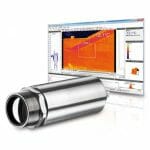- Schaeffler accepted as steering member in the Hydrogen Council.
- Hydrogen technology to be driven forward together in the direction of the mass market.
- Schaeffler develops and manufactures key components for hydrogen-powered fuel cells.
Sutton Coldfield, UK | 15. January 2020 | Schaeffler is increasing its involvement in hydrogen technology: the automotive and industrial supplier is now a steering member in the Hydrogen Council, a globally active hydrogen interest group based in Belgium. The initiative comprises 81 leading companies from the energy, transport, and industrial sectors. The goal of the members is to drive forward hydrogen technology in the direction of industrialisation.
Establishing hydrogen technologies globally
“We want to shape CO2-neutral, sustainable mobility with regard to the entire energy chain. We will accomplish this by using the enormous future potential of green hydrogen along the entire value-added chain,“ says Klaus Rosenfeld, CEO of Schaeffler AG. “Joining the Hydrogen Council will enable us to further advance and establish hydrogen technologies together with strong partners globally.”
With its goal of achieving maximum sustainability and CO2 neutrality, Schaeffler is shaping mobility and the associated energy chain as an automotive and industrial supplier. “Hydrogen technology offers enormous potential in this area, both in terms of energy storage and emissions-free drive solutions,” says Klaus Rosenfeld. “Our core expertise in materials technology, forming technology, and surface technology will enable the efficient high-volume production of key components for the future hydrogen economy and will make a significant contribution to the company’s success.”
The establishment and development of research and development partnerships for developing and testing fuel cell components is also an important strategic task here. Schaeffler already joined the Bavarian Hydrogen Council last year.
Key components for fuel cells
Schaeffler has been focusing on the value-added chain of key components for fuel cells for some time. Bipolar plates are produced by precise forming and coating in the thin-layer range, which once stacked, form an important component of the fuel cell system. The fuel cell stacks are energy converters, which let H2 react with O2 to form water. The electricity generated during this process can be used to power the vehicle’s electric motor. Schaeffler’s portfolio for optimised fuel cell systems is expanded by additional areas of expertise, such as electronic control systems, special high-performance bearings, smart thermal management modules or components for passive hydrogen recirculation.





